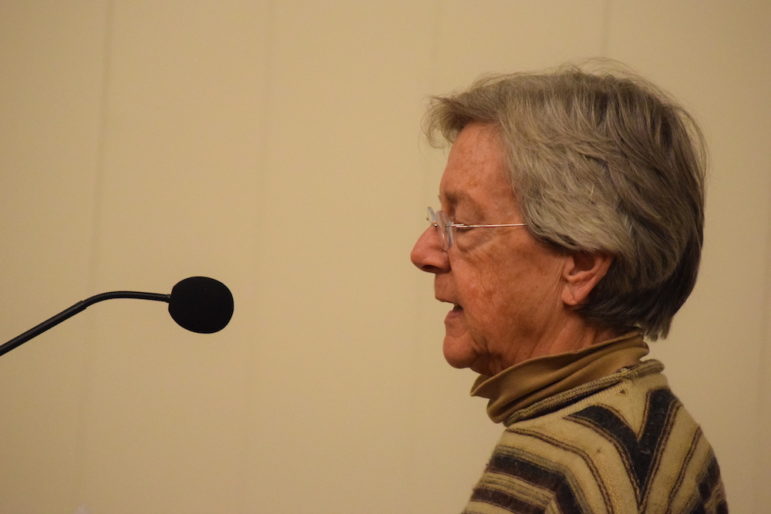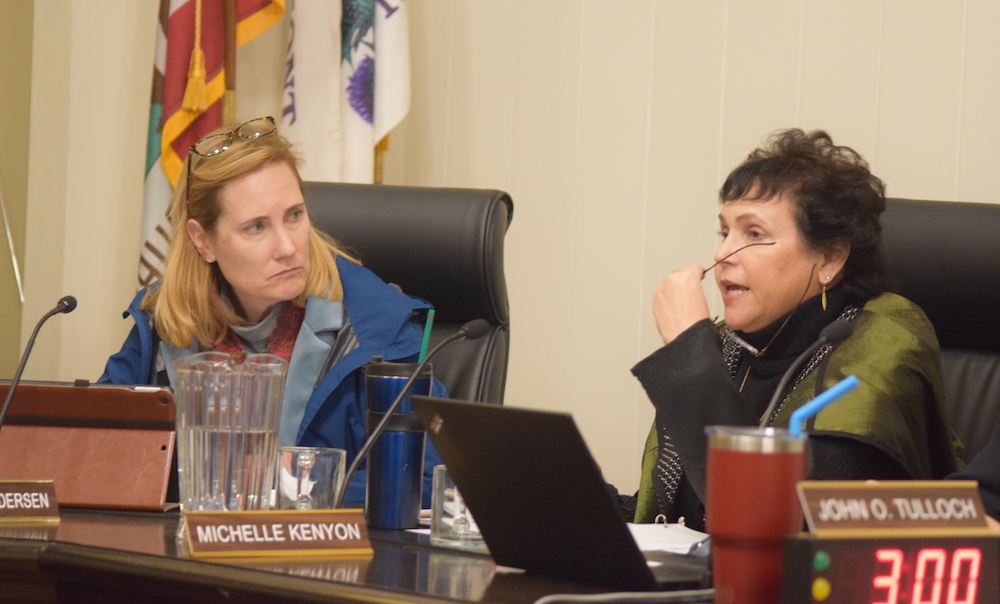PIEDMONT —— The City Council on Monday night gave final approval of a proposed ballot measure to continue the city’s Municipal Services Special Tax for four more years, from July 2021 until July 2025.
But that approval didn’t come without some controversy, as council members backtracked on proposed ballot measure language revisions made at the council’s Nov. 18 meeting.
Those slight adjustments made at the council’s Nov. 18 meeting, which council members said were intended to clarify what that tax money could be spent on, served instead to suggest to some residents that the “parcel tax” money could be spent in undefined ways — assuming two-thirds of Piedmont voters say “yes” to the tax on the March 2020 election ballot. To some Piedmont residents, those words didn’t clarify the matter, but muddied it up.
What City Attorney Michelle Kenyon characterized as a “non-substantive change” in the ballot measure language was indeed substantive to many people who had emailed council members in the past two weeks contending the wording change presented a problem for them.
The key wording change was from the tax money paying for “including, but not limited to, police and fire protection, street maintenance” and other important services, to “which may include, but are not limited to, police and fire protection, street maintenance” and other important services.

Critics said that change — specifically the use of the word “may” — would give the city the option of not funding some of those key services and facilities. The new wording, they said, did not specifically require the parcel tax proceeds be spent on the staple items like police and fire protection, street maintenance, parks maintenance and other “services necessary for the public good.”
“If in any fiscal year commencing on or after July 1, 2021, the City Council shall determine that municipal services, including, but not limited to, police and fire protection, street maintenance, building regulations, library services, recreation, parks maintenance, planning and public works and similar services, are necessary for the public good, welfare and safety, and that the cost of making available such services will exceed the amount of funds generated through other revenue and income of the City for such services, then it may levy a special tax for such fiscal year on each parcel of real property within the City in a manner provided herein.”
Ballot measure’s original text (to which the Council returned and approved Monday night)
“If in any fiscal year commencing on or after July 1, 2021, the City Council shall determine that municipal services, which may include, but are not limited to, police and fire protection, street maintenance, building regulations, library services, recreation, parks maintenance, planning and public works and similar services, are necessary for the public good, welfare and safety, and that the cost of making available such services will exceed the amount of funds generated through other revenue and income of the City for such services, then it may levy a special tax for such fiscal year on each parcel of real property within the City in a manner provided herein.”
Text revised from the original on Nov. 18 (and subsequently changed back on Monday night)
The newer wording, Kathleen Quenneville said, “means it doesn’t have to include any of these (services), and I think that is substantive. We haven’t said it has to.”
Kenyon told the council Monday that neither the pre-Nov. 18 wording nor the post-Nov. 18 wording in the measure requires the money be spent on any specific public service, though it all must be spent on public services in general. But council members acknowledged the concerns brought on by the wording change.
“Members of the public have rightly questioned whether this is ‘non-substantive.’”
Councilman Tim Rood
Councilwoman Betsy Smegal Andersen, who proposed the wording change on Nov. 18, said she did it in the name of clarity and transparency. It’s almost certain, she said, that not all nine services mentioned in the ballot measure will be funded at any given time, as the money only stretches so far.
Andersen then said she was fine with going with the language first proposed to the council Nov. 18. The council soon thereafter voted 5-0 to approve the measure with the pre-revision language.
The parcel tax, which generates about 8 percent of Piedmont’s general fund budget, is levied against all improved lots in the city, assessed primarily according to lot size. That inflation-adjusted parcel tax range called for in the March 2020 ballot measure, would rise from $551 annually for a lot of up to 4,999 square feet to $930 annually for parcels of more than 20,000 square feet.
The council also voted unanimously Monday to have Mayor Robert McBain and Councilwoman Jen Cavanaugh draft the ballot measure argument in favor of the renewing the parcel tax, as well as rebuttals to arguments against the parcel tax, should any be submitted, and to approve other “procedural details” related to getting the parcel tax measure onto the March 2020 ballot.
In October, the city’s Budget Advisory and Financial Planning Committee recommended the City Council put a parcel tax renewal on the election ballot. While that committee recommended a higher rate and that the tax run for eight years, the council stuck with a four-year term, and the same rate, inflation-adjusted.
The City Council then advised staff to prepare for putting the parcel tax on the local March 2020 election ballot.
There has been consensus on the importance of that tax money to city coffers. When on Nov. 18 Cavanaugh asked city Finance Director Michael Szczech if there are “any circumstances in the foreseeable future where you would foresee us not needing the parcel tax,” Szczech quickly replied, “No.”
City Clerk John Tulloch issued the official notice of the special election on Tuesday, Dec. 3. (See below.)
Photos by Sam Richards | sam.richards4344@gmail.com
